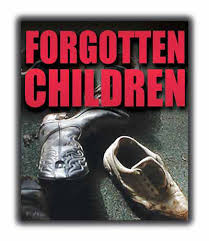Counterpuch–The Pills Your Mother Gives You…Death, Depression and Prozac
Counterpuch–The Pills Your Mother Gives You…Death, Depression and Prozac
Sat, 02 Apr 2005
Alexander Cockburn, co-editor of Counterpunch, the bi-weekly muckraking newsletter that prides itself: “We have all the right enemies” takes a swipe at Prozac, Eli Lilly and its battalion of heavy hitters who have successfully shielded Prozac from the impact of its severe adverse effects–such as suicidal / homicidal violent outbursts, most recently in Minnesota.
Cockburn suspects: “The minute the high command at Eli Lilly, manufacturer of Prozac, saw those news stories about [Jeff] Weise you can bet they went into crisis mode, and only began to relax when Weise’s websurfs of neo-Nazi sites took over the headlines. Hitler trumps Prozac every time, particularly if it’s an Injun teen ranting about racial purity. How many times, amid the carnage of such homicidal sprees, do investigators find a prescription for antidepressants at the murder scene? Luvox at Columbine, Prozac at Louisville, Kentucky, where Joseph Wesbecker killed nine, including himself. You’ll find many such stories in the past fifteen years.”
“Each burst in the sewage pipe brings a new challenge to Lilly’s sales force, which has had some heavy hitters down the years, including George Herbert Walker Bush (onetime member of the Lilly board of directors); former Enron CEO Ken Lay (onetime member of the board); George W. Bush’s former director of the Office of Management and Budget, Mitch Daniels (a former senior vice president); George W. Bush’s Homeland Security Advisory Council member Sidney Taurel (a Lilly CEO); or the National Alliance for the Mentally Ill (a recipient of Lilly funding).”
But in India, he notes, the marketing of depression as a problem that can be resolved by a drug, is met with ridicule: “In 2000, when hundreds of farmers in the Indian state of Andhra Pradesh were committing suicide because of neoliberal policies that had destroyed their livelihoods, the state government announced it was sending out a team of shrinks to determine why the farmers were depressed. The implication was that these people were mentally unstable. But in India credulity about the causes of depression is not so far advanced. The plan provoked a storm of ridicule, and in the elections that followed the Andhra Pradesh government, darling of Western neoliberals, was duly trounced.
Where is America’s healthy skepticism?
Why are liberals more inclined to be believers in chemical solutions to human problems??
Contact: Vera Hassner Sharav
212-595-8974
![]()
Weekend Edition COUNTERPUNCH
April 2 / 3, 2005
But the Pills Your Mother Gives You…
Death, Depression and Prozac
By ALEXANDER COCKBURN
New Dehli, India.
Jeff Weise, teen slayer of ten, including himself, at the Red Lake Indian reservation in northern Minnesota, was on Prozac, prescribed by some doc. How did the consultation go? “Here Jeff, take these, they may help you get over life’s little problems, like the fact that when you were 8 your dad committed suicide and when you were 10 your cousin was killed in a car wreck that left your mom with partial paralysis and an injured brain. And let’s face it, Jeff, most likely you’ll never get off the res. You’re here for the rest of your life.” Cut to a shot of the doc holding up a Prozac bottle, like the kindly fellow in the white coat and mirrored headband in 1950s Lucky Strike ads, telling us that Luckies were a fine way to soothe a raspy throat.
The minute the high command at Eli Lilly, manufacturer of Prozac, saw those news stories about Weise you can bet they went into crisis mode, and only began to relax when Weise’s websurfs of neo-Nazi sites took over the headlines. Hitler trumps Prozac every time, particularly if it’s an Injun teen ranting about racial purity. How many times, amid the carnage of such homicidal sprees, do investigators find a prescription for antidepressants at the murder scene? Luvox at Columbine, Prozac at Louisville, Kentucky, where Joseph Wesbecker killed nine, including himself. You’ll find many such stories in the past fifteen years.
By now the Lilly defense formula is pretty standardized:self-righteous handouts about the company’s costly research and rigorous screening, crowned by the imprimatur of that watchdog for the public interest, the FDA. And of course there’s the bogus comfort of numbers; if Lilly’s pill factory had a big sign like MacDonald’s, it could boast Prozac: Billions Served.
Each burst in the sewage pipe brings a new challenge to Lilly’s sales force, which has had some heavy hitters down the years, including George Herbert Walker Bush (onetime member of the Lilly board of directors); former Enron CEO Ken Lay (onetime member of the board); George W. Bush’s former director of the Office of Management and Budget, Mitch Daniels (a former senior vice president); George W. Bush’s Homeland Security Advisory Council member Sidney Taurel (a Lilly CEO); or the National Alliance for the Mentally Ill (a recipient of Lilly funding).
At the turn of this year there was a five-alarm incident when the British Medical Journal went back to the 1994 Wesbecker suit against Lilly, reminding the world that the company had been involved in some shifty footwork involving a back-door payoff to the plaintiffs in a deal that successfully excluded from Judge John Potter’s courtroom the regulatory case history of Oraflex, a highly compromised Lilly product, which displayed the company’s supposed disclosures to the FDA in an unpleasing light.
Lilly rose to the challenge, successfully persuading gullible journalists that the real story concerned a lonely freelancer writing for BMJ and not a powerful pharmaceutical company with a huge advertising budget. The press dutifully shifted its focus from Lilly’s outrageous efforts to suppress evidence to the narrow question of whether a piece of evidence had really been in the public record in the years since 1997, when Judge Potter changed his verdict to “dismissed as settled with prejudice,” very far from the victory Lilly had been claiming.
That’s the trouble with time, as Paul Krassner joked about Waldheimer’s Disease, which is when you get old and forget you were a Nazi. But it’s never too late to review the origins of the Depression Industry in the late 1980s, and the saga of what happened after three Lilly researchers concocted a potion in the mid-1970s they christened fluoxetine hydrochloride, later known to the world as Prozac.
Long years of rigorous testing? When Fred Gardner and I investigated the selling of depression and Prozac in the mid-1990s, we found that clinical trials excluded suicidal patients, children and the elderly although once FDA approval was granted, the drug could be prescribed for anyone. According to Dr. Peter Breggin, the well-known psychiatrist who analyzed the FDA’s approval of Prozac, it was based, ultimately, on three studies indicating that fluoxetine relieved some symptoms of depression more effectively than a placebo, and in the face of nine studies indicating no positive effect. Only sixty- three patients were on fluoxetine (fluoexetine hydrochloride was branded as Prozac in the mid 70s) for a period of more than two years. By 1988 the National Institute of Mental Health had not only put the government stamp of approval on corporate-funded depression research but had created a mechanism whereby government money and personnel could be employed to stimulate demand for corporate products.
Psychiatrists–a breed whose adepts, so stated a study published in the Journal of Clinical Psychiatry in 1980, commit suicide at twice the national rate–have been central to the entire enterprise. The process linking their sorcery to the corporate bottom line has a robust simplicity to it. As Prozac came off Lilly’s research bench and headed for the mass production line psychiatrists labored to formulate a multitude of bogus pathologies to be installed in the Diagnostic and Statistical Manual of Mental Disorders, whose chief editor in the 1980s was Robert Spitzer MD, an orgone box veteran and adept copywriter skilled at minting new ailments for late twentieth-century America and sanctioning treatment, medication, state funding for the requisite pills (no expensive consultative therapy) and reimbursement by insurance companies.
When detailed research showed likely linkage of Prozac to violent acts, Lilly-liveried psychiatrists were there to douse the flames of doubt. In 1991 the FDA’s Psychopharmacologic Drugs Advisory Committee met to decide whether Prozac should carry a warning label about links to suicide. Five out of the ten panel members (eight of whom were shrinks) had active financial interests in the drugs the committee was investigating, and all voted against requiring a warning, their obvious conflicts duly sanitized by the toothless FDA. Other shrinks in the hire of the drug companies urged ever wider application of Prozac to remedy social angst, including plans for compulsory Prozac-dosing of youngsters.
In 2000, when hundreds of farmers in the Indian state of Andhra Pradesh were committing suicide because of neoliberal policies that had destroyed their livelihoods, the state government announced it was sending out a team of shrinks to determine why the farmers were depressed. The implication was that these people were mentally unstable. But in India credulity about the causes of depression is not so far advanced. The plan provoked a storm of ridicule, and in the elections that followed the Andhra Pradesh government, darling of Western neoliberals, was duly trounced.
No such happy chance in the United States, where government is in the pay of drug companies and prescriptions for antidepressants have long since taken over from political manifestos that would cure depression by collective social action. How they must have cheered at Eli Lilly when the Senate wiped out Chapter 7 of the bankruptcy statutes, fostering family violence, heightened crime and a vast new potential market for Prozac and kindred potions at the stroke of a pen.
(A shorter version of this column originally ran in the issue of The Nation that went to press on Wednesday of this week.)
FAIR USE NOTICE: This may contain copyrighted (© ) material the use of which has not always been specifically authorized by the copyright owner. Such material is made available for educational purposes, to advance understanding of human rights, democracy, scientific, moral, ethical, and social justice issues, etc. It is believed that this constitutes a ‘fair use’ of any such copyrighted material as provided for in Title 17 U.S.C. section 107 of the US Copyright Law. This material is distributed without profit.


